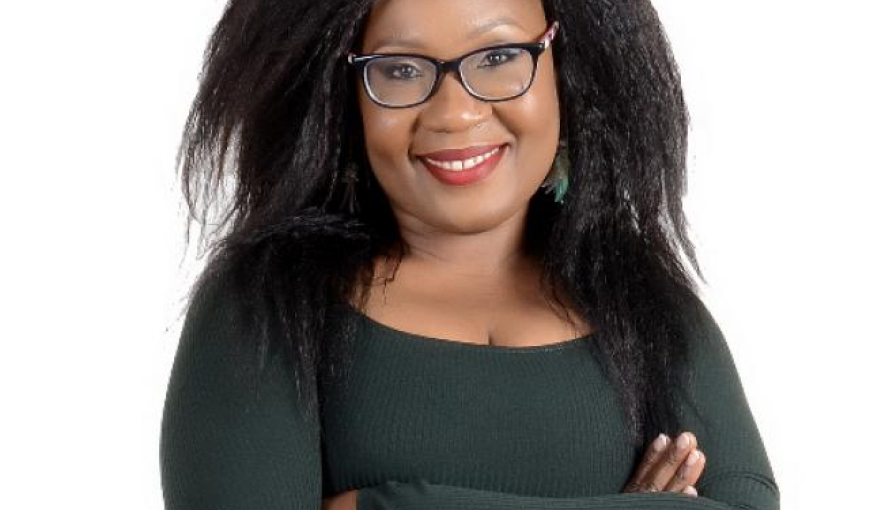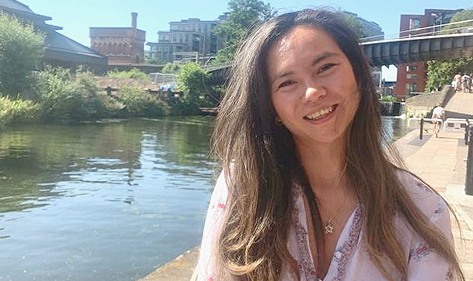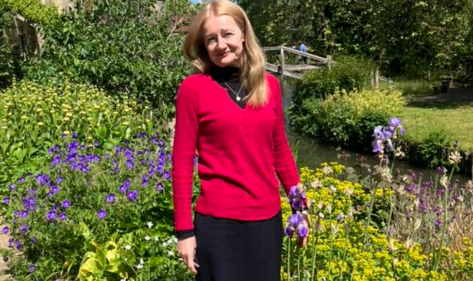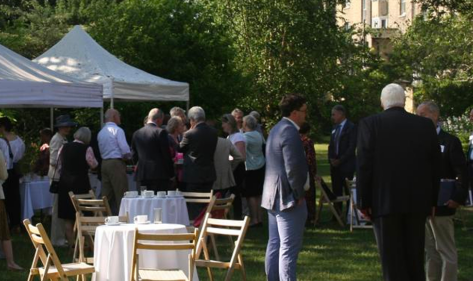
Graduation Story – Bea Simpson
For Bea Simpson, a PhD in Education was a return to first principles. After training in law, she had returned to her native Uganda and worked with the African Prisons Project, supporting those in prison to understand the criminal justice system and work towards qualifications in law.
But the overwhelming prevalence of poverty, low educational attainment and illiteracy in those she was working with led her to feel she was approaching things from the wrong angle.
“Justice is supposed to be equal for all, but I didn’t see this in practice,” she says. “Justice is not extended to you if you’re poor or illiterate. I wanted to be conduit for extending justice to everyone, as to me that’s what law is.”
The project had a significant impact, enabling many of those Bea worked with to leave prison sooner than they otherwise would have, and Bea and her team were invited to share their work at the UN Sustainable Development Goals in 2015. But her discomfort with the continuing need for the project’s existence grew.
“Unjust but also inefficient”
“There were always more and more people coming through the system, so we were always going to have a job. However, the injustice of people spending longer periods on remand than they would have served had they been found guilty was not only unjust but also an inefficient use of limited public resources.
I realised that what was actually needed was for people to be educated in the first place so that they could have a skill set to rely on for a livelihood. 90% of prisoners that I worked with in Uganda and Kenya were illiterate or semi-illiterate.”
Bea drew a direct line from the correlation between illiteracy and incarceration to the high dropout rates seen in Uganda’s primary schools at Year 3 level. A shift to English in the classroom sees pupils who speak a different language at home left behind, with a startling 70% both illiterate and innumerate before secondary school.
“The policies around language use disadvantage people in more rural areas, as those in towns tend to grow up speaking English at home. When I realised that just 0.5% of girls who start school in Uganda will go on to tertiary education, I was really shocked.”
Tusome Africa Charity
Attracted by the possibility, at Cambridge’s Faculty of Education, of studying education from the perspective of international development, Bea applied for a PhD. Simultaneously, she began developing practical solutions closer to home, and set up a charity, Tusome Africa. It brings support for early childhood education directly to the children most at risk of dropping out, training volunteers to offer activities and engagement to out of school children.
“We have these amazing women working for us – I’m in awe of them,” says Bea. “We give them a bicycle, a bag of books and educational resources, and when they’ve worked for us for a year we try to find funding to properly train them as early years teachers, giving them a career, status and opportunity.”
While Bea claims that naivety about the challenges ahead played its part in giving her the courage to launch such an ambitious solution, the astonishing double act of pursuing a PhD on one continent while running a fledgling charity on another seems to have been mutually supportive. She graduates this weekend with the MPhil component of her degree, a celebration delayed by pandemic, and hopes to complete her PhD this year.
“The courage to set up the charity came the minute I was accepted at Cambridge,” she says. “I knew that it had to do more than just get me a degree – it had to have a wider impact. Cambridge has really shaped my understanding of education, and Darwin has been at the centre of that. Seeing our volunteers in action gives me an incredible joy which fuels me.”



